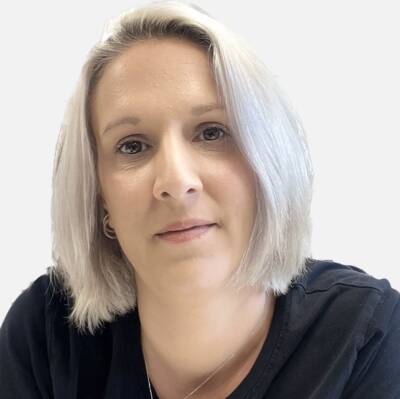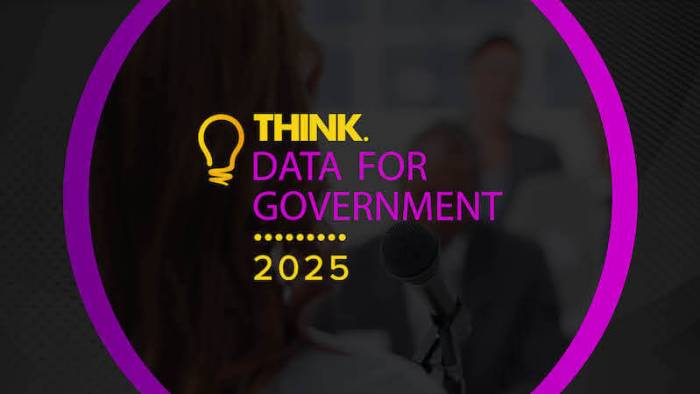Did you enjoy school?
School was the place I went to see my friends and get away from the abuse I faced at home, so I suppose it provided some respite, although, on my first day of school, my reception year teacher asked me “why can’t you be more like your sister?”. This started me on a journey of not being good enough. At the age of eight, I gave up. I remember sitting crossed legged on the scratchy carpet and thinking what’s the point? No matter how hard I try, I will never be more like my sister, or clever enough.

While I did enjoy getting away, it was more of a social experiment for me, than something that held me in good stead for the future.
What qualifications do you have?
I left school with a C in English Literature and a C in English Language. Since leaving full-time education, I have taken a few distance learning courses and managed to gain vocational qualifications for short courses in marketing and leadership.
Has your career path been a smooth transition, a rocky road or a combination of both?
I do think my career may have been slightly easier if I’d have gained formal qualifications, but with the mix of paths I’ve taken, I’m not sure I would have ended where I am today.
At 16 years old, I was living independently from any responsible adults, and in receipt of income support, which at the time was £43 per week. Getting to school ate up at least £10 per week, and I had bills to pay, so I made a choice to work, instead of furthering my education. I’d put in the hours to make the minimum wage cash, which I believe was around £4.27 per hour.
I started work at 4am in a hotel, preparing for breakfast, and worked there until 4pm. I’d then catch the bus to my evening shift at a local takeaway, where I’d work from 5pm-midnight, and leave with a free pizza each night. I became a single mum at 17, and had to find more suitable work. I found a receptionist job at a company who had an onsite creche, so when my daughter was three months old, I’d work 9-4 there, hand her over to her dad and head to an outbound sales call centre until 8pm, when I’d start my shift in a bar until 1am.
This sort of work carried on until I was around 20, when I got an ‘office’ job, and minimum wage had risen to £6.48 per hour. In an office, as an unskilled and uneducated worker, I progressed my career and earning potential by offering to help or take on extra responsibilities. With every role, I’ve shown myself as hardworking and someone to rely on, although the danger here is that when you’re doing it all for free, there’s no reason to be paid to do it, so I’ve always had to leave jobs to progress to higher pay, or title. Volunteering for opportunities has allowed me to progress to roles and industries I never thought possible. As I sit here today, ‘2 GCSE Jemma’ is a respected member of the cyber industry and the founder of an award winning cybersecurity company.
What specific challenges do you see women facing in the industry?
This is a question I always feel conflicted over, because the cyber industry welcomed me with open arms, and has loved me for who I am. Those who know and have worked with me treat me with the utmost respect, however, when I meet new people, they talk down to me. They assume I’m in the room by accident, and will make derogatory comments, filled with microaggressions.
It’s very typical that my tone is referred to as harsh or aggressive by men, and I am told I don’t work well with other women. Upon asking my peers, both male and female, they tell me this isn’t accurate at all, giving more weight to my conflict on the topic.
The cyber industry hugely lacks vital soft skills needed to form relationships, and communicate effectively. There is a stereotype of male, pale and stale for a reason. If we cannot embed inclusivity into cyber, we run a very real risk of failing to defend against a very broad and diverse demographic of attacker.
What is the best career advice you can give to others?
It’s well known that women won’t put themselves forward for opportunities if they don’t meet all the criteria in a job spec, and while I don’t think that will change, what I will say is fake it until you make it. When I say fake it, I don’t mean apply for roles which are way outside of your ability, like rocket scientist, I mean be an average middle aged male for a minute. Walk in their shoes and do what they would do. The worst that can happen is you’re told no, and if you’re told no, maybe it wasn’t the right opportunity for you. I absolutely can’t walk into a negotiation and from my heart defend my position, but fake Jemma can. Fake Jemma can say I am worth this, while real Jemma does a little whimper on the inside. You don’t decide whether you are good enough, let them decide, because you are good enough, you just aren’t confident enough to see it.
If you had to pick one mentor that had the biggest influence on you, who would it be?
I always say you can blame or thank this person for who I am today. Dinis Cruz is the person who introduced me to cybersecurity, and allowed me to play in the cyber world until I worked out where I belonged. Dinis is the person I call when I’m outraged by the latest cyber incident or something that I’ve seen, and he tells me to never stop being angry. I take that onboard every single day, just as much as the first time I went to him over the treatment of a real human’s data. These are real people and I will always be outraged and fight for them. Without Dinis seeing something in me, I wouldn’t have developed the passion and drive in cyber I have today.
From where do you draw inspiration?
I make no secret of ‘doing it for the nans’. My nan is the most important person to me, and she, like your nan, will be targeted by scammers. I wake up every day to protect my nan, and by protecting my nan, I am protecting yours.
If you liked this content…
I also feel like I have a lot to prove, so I work hard to show I am where I’m supposed to be, and not here by accident.
Doing it for the nans and showing I’m good enough inspires me to do what needs to be done in the world of cyber.
What is the biggest challenge you have faced to date?
My life has been filled with challenges, and each of these challenges have made me who I am today. One of many the Jemmaisms you’ll hear me say is “all I know about life is it hasn’t beaten me yet!” I approach each challenge with the same question “can I do anything about this challenge? Is it within my control?” If I answer no, then I move on and I don’t give energy to this challenge. If the answer is yes, then I have already slowed my primitive instincts enough to rationalise, and if I can answer this question, I’m on my way to calmly working through a solution.
What qualities do you feel makes a good leader?
A good leader spends more time listening than speaking. I tend to ask questions rather than solve problems, and there is no time limit on this, in fact, the longest I’ve listened and asked questions with one of my team was three hours. At the end of the three hours, she had worked through all of the possibilities of her challenge and had a plan, and it was well worth it. As a manager, I could have told her the answer, but she wouldn’t have grown in that conversation. Leaders should allow space for their team to fail safely. There’s a time for following a process, but discovery is how we improve.
Make sure to find a time where the team can play with their ideas in a safe environment, with no time pressures or demands, it makes them feel happier and you may come up with a revolutionary new way to achieve the day-to-day tasks. I spend a lot of time with my team to understand what they need from me, how they preferred to be managed, and what secret skills they may have. This means I lead with equity, and give them each what they need to succeed, and can give them opportunities to make sure they don’t deskill during their time with me.
From a work viewpoint, what has the last 12 months been like?
The past 12 months have been very tricky as a small business, and a solo founder. At the end of January 2023, work we had booked in just vanished. Customers stopped responding to us, and signed contracts became scraps of meaningless paper. The do more with less statement thrown around many organisation hit us hard, as we were expected to run professional services contracts, or offer subscriptions at a loss.
This time last year, I had to make the decision to restructure the business, and start making redundancies, and this is where being a solo founder absolutely sucks. I felt the pressure of the Culture Gem family’s livelihood on my shoulders. The financial stability of my carefully curated team weighed heavily on me, and really, I had no one to talk to about this. As a business owner, desperate for work, I had to keep this all under my hat, and paint the picture that Culture Gem was doing fine, while I knew, due to these magically disappearing contracts, we were sinking fast, and I had a responsibility to act!
Due to IR35, it has become increasingly difficult for smaller consultancy firms like Culture Gem to compete and succeed, and are losing out to the big consultancy firms. On the product side of the business, we are trampled by the stack ‘em high, sell ‘em cheap bigger names in the security awareness industry, who can afford to drop their prices by 90 percent.
It can be very lonely when you have to put a brave face on things, and make tough decisions to protect the interests of your business. As someone typically strong, there have been times where I have been an emotional wreck, with nowhere to turn.
What would you say are the biggest tech-based challenges we face today?
Accessibility, misinformation and silver bullets have to be up there with the biggest tech-based challenges. Tech solutions often boast meeting WCAG compliance, sellers promise the earth, and are rarely honest about the reality of their tooling. Tech teams are sold on the WCAG compliant shiny thing that’ll solve all their problems, and are stuck when they either don’t have the technical capability to use the tool, or it doesn’t do what they thought it would do, but are tied into a contract. When tech teams are buying into something sold as the silver bullet, they really need to test drive it, and not by a select few; a diverse range of people should trial it to make sure it is accessible to the appropriate audience, and can be used in the way it’s been promised. Make sure a support package is built into the contract, and it offers a fair amount of support hours, over a reasonable amount of time.
What can be done to encourage more women into the industry?
As someone who was welcomed into the industry, this is a question I always struggle to answer. When I consider what 24 year old Jemma might need to see to enter the industry in 2024, I’d guess it would be to hear from people who look, sound, and smell like me, and probably hear less of what a terrible experience it is to be a woman in the industry. I have some really great stories about working in cyber, leading teams, and making a difference, and maybe these are the things we should be sharing more of, instead of all the times we weren’t welcome here? If we start talking honestly, but with positivity, perhaps it might be a career move that some are more sold on?
If I consider what 14 year old Jemma might need to see to dream of entering the industry in 2024, I’d guess it would be more cool stories that resonate with me, about the really interesting things we get up to, instead of boring TV adverts telling us to buy a VPN. Where are the stories about how we stopped a near miss, and swooped in like the super women we are?
And if I step back even further to think about what eight-year old Jemma might need in 2024 to answer the question of what I want to be when I grow up with ‘a cyber defender’, I guess I’d need to understand why cyber is important, and know it’s a career that was exciting to me as when I wanted to be an astronaut, vet or hairdresser.
Give us a fact about you that most other people wouldn’t know.
I have a phobia of my own name. It stems from childhood trauma, and is part of the imposter syndrome I carry with me. When someone says my name, it fills me with a little bit of anger, and a lot of panic. If you see me in the street, office or at a conference, please call me Jem.








